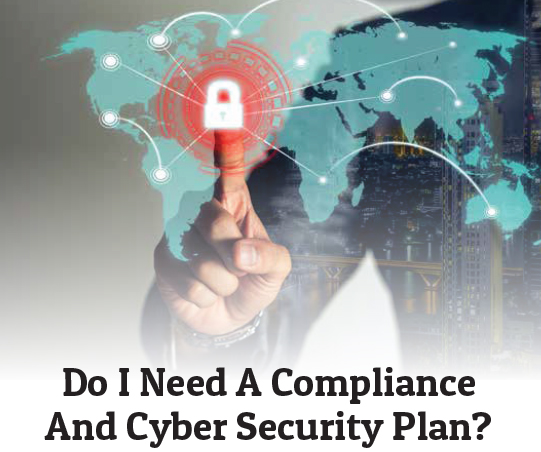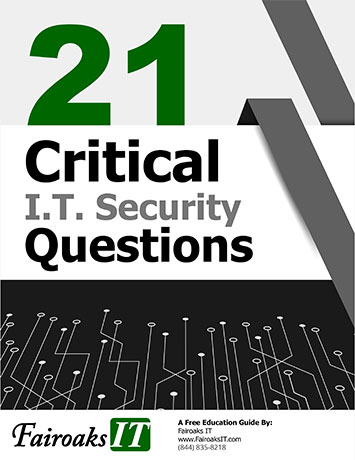
We talk a lot about cybersecurity and how incorporating the right practices can help fully protect your company from cyber-attacks, but there's another term that's often referenced when discussing cybersecurity that's just as important: compliance. While it's incredibly important for businesses to focus on maintaining the highest cybersecurity standards, they also need to ensure protocol meets compliance standards.
In regard to cybersecurity, compliance means creating a process to help protect the confidentiality and accessibility of information that's stored, processed or transferred. There is not an overarching standard for compliance when it comes to this. Instead, there are different guidelines and requirements for every industry, so it's important to be aware of your company's needs. If you are not, you could be subject to fines and penalties in addition to being at greater risk for cyber-attacks.
Though they're related, there are still some glaring differences between cybersecurity and compliance. Cybersecurity is practiced for the company's own sake instead of to satisfy the needs of a third party. It's also present to protect a business from the risk of constant threats and needs to be continually managed and up dated. IT compliance, however, is completed to satisfy external requirements and is driven by what the business needs more than anything else. Unlike cybersecurity, compliance is finished when the third party is satisfied with your process.
Compliance and cybersecurity work best when they're aligned, so it's extremely important that your business has a plan for compliance and cybersecurity. On it's own compliance is incredibly important for various reasons. The first is probably the most obvious since you can be fined or penalized if you fail to comply with industry standards. Having the proper compliance program will prevent your company from being fined. Additionally, your compliance plan needs to include continuous monitoring and assessment of networks, devices and systems that your company uses in order to align with regulatory cybersecurity requirements. It also sets up an action plan if your business is ever breached, since you need to communicate news of the breach to any parties that could've been impacted.
Every business, regardless of size, is susceptible to data breaches. It's only with strong cybersecurity and IT compliance plans that you can hope to plug every hole hackers may look to exploit. Compliance is an important part of risk management and it's essential for the future success of any business.
A compliance plan alone is a great start, but having cybersecurity measures in place as well will help you be prepared if you're ever audited by a third party. Weather you have teams or individuals who oversee
“Compliance and cyber security work best when they’re aligned, so it’s incredibly important that your business has a plan for compliance and cyber security.”
security protocols, they all need to know the require-ments for cybersecurity compliance and exactly how protected the company is. If your company utilizes a firewall, which it absolutely should, your teams need to know exactly how protective that firewall is. They also need the evidence to back up their claims so they can prove the information they provide is accurate. Auditors want to see a handful of different documents, so make sure your team is prepared for any questions or requests.
Once you have the basics of your plans taken care of, you can focus on accurately documenting each step. From meeting notes to the list of items that an auditor may need, your entire team needs to document anything they do or see regarding cybersecurity.
There is another, much easier option to ensure your business stays compliant and is protected from cyber-attacks. You can hire a managed IT services provider. With a managed IT provider, you will have a dedicated team that ensures your company's sensitive information is protected and all of your cybersecurity holes are filled. They'll also ensure your business stays compliant with any third-party regulating bodies in the process.
Though technology is ever-advancing, you shouldn't have to worry about cyber-attacks on a daily basis. With strong security protocol, or with the help of a trusted managed IT services provider, you can rest easy knowing your company's information is as secure as possible.









